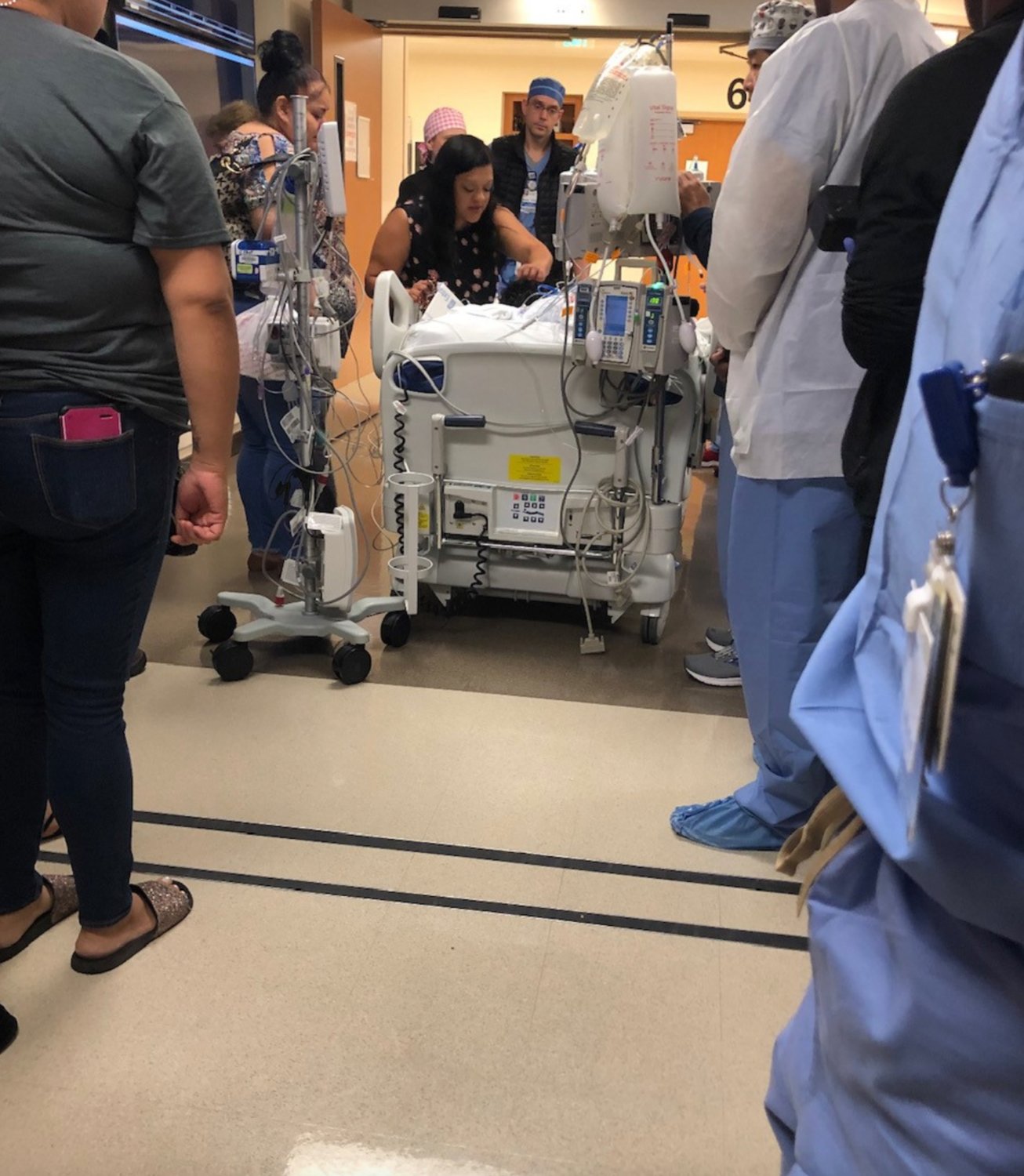A hero in the midst of tragedy: Methodist West Hospital’s first ‘Honor Walk’ organ donor saves four lives
Michael Oviedo was only 21 when he died unexpectedly from a severe asthma attack, but his legacy continues on earth through the lives he saved by donating his organs.
On Aug. 5, Oviedo, a …
This item is available in full to subscribers.
Attention subscribers
To continue reading, you will need to either log in to your subscriber account, or purchase a new subscription.
If you are a current print subscriber, you can set up a free website account and connect your subscription to it by clicking here.
If you are a digital subscriber with an active, online-only subscription then you already have an account here. Just reset your password if you've not yet logged in to your account on this new site.
Otherwise, click here to view your options for subscribing.
Please log in to continue |
A hero in the midst of tragedy: Methodist West Hospital’s first ‘Honor Walk’ organ donor saves four lives
Michael Oviedo was only 21 when he died unexpectedly from a severe asthma attack, but his legacy continues on earth through the lives he saved by donating his organs.
On Aug. 5, Oviedo, a long-time sufferer of asthma, collapsed in his home. He was able to dial 911 before he passed out, and EMS transported him to the hospital. But on Aug. 8, doctors reported that he no longer had brain activity.
Oviedo’s mother, Lori Lynn Rojas, was in a state of shock when her son passed. In her grief, she recalled a nurse asking her if she wanted to have Oviedo’s organs donated, but before Rojas could answer, another nurse said, “He’s already made this decision.”
Oviedo had listed himself as an organ donor on his driver’s license. Rojas stated that she did not know her son was an organ donor, but she wasn’t surprised to learn that he wanted his organs to be used to save lives.
“He’s a very giving person: a very loving person. He always helps anybody. So it didn't surprise me that these were his wishes,” she said. “I’m proud. I’m very, very proud.”
Oviedo’s organs directly saved four lives. His heart went to a 68-year-old man from Houston. His liver went to a 36-year-old woman in Oklahoma. His kidneys went to a 27-year-old and a 44-year-old.
Rojas will never know how many other lives he helped indirectly. Oviedo’s bones, intestines and skin went to even more people.
“Even in this tragedy, he was helping other people,” said Rojas. “He was saving lives.”
There is another touching aspect of Oviedo’s story: he was he was the first organ donor from Methodist West Hospital to be given an “Honor Walk” as a tribute.
According to Rojas, as the doctors wheeled Oviedo into the operating room, all the doctors, nurses and staff gathered along the hall. The hospital played music as his body passed and everyone showed their respects for Oviedo.
Despite her grief, Rojas was filled with pride for her son as they moved him through the hospital. “It’s sad to lose my child, but to know that my son was so selfless made me so proud,” she said.
She added, “In that moment, everyone in the hospital knew who my son was and what he had done.”
Sarah Lam, Senior Marketing & Communications Specialist said, "We’re all so proud of our staff for their care of the patient and his family.”
Rojas said that the community is calling Oviedo a local hero for the lives he saved. “The 68-year-old man was weeks away from dying. And he received my son’s huge heart,” said Rojas.
We’re all just so touched by Michael’s beautiful gesture and the impact it has had on the community,” said Lam.
Rojas credited the Katy community for helping her family through the loss of Oviedo. “I wouldn’t have been able to do this without the Katy community,” she said, “He was 21-years-old. He never thought anything would happen to him. He didn’t have life insurance.”
Rojas works at Snappy’s Cafe and Grille, and she said the community stepped in to help her financially. Rojas is a single mother of four children, and Oviedo helped her pay bills. Oviedo’s father died in a car accident when Oviedo was a young child.
Rojas believes that her son’s legacy is about more than just the lives he saved. She hopes that his selfless act will inspire more people to become organ donors.
“Michael always thought of other people,” said Rojas. “What he wanted more than anything was to help people. You’re supposed to help people. You’re supposed to do the right thing. He knew that.”
Rojas hopes that her son’s story will inspire more people to change their driver’s licenses to indicate that they’re organ donors.
“This is bigger than him. This is bigger than you and me. This is bigger than all of us,” she said.






